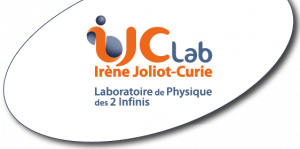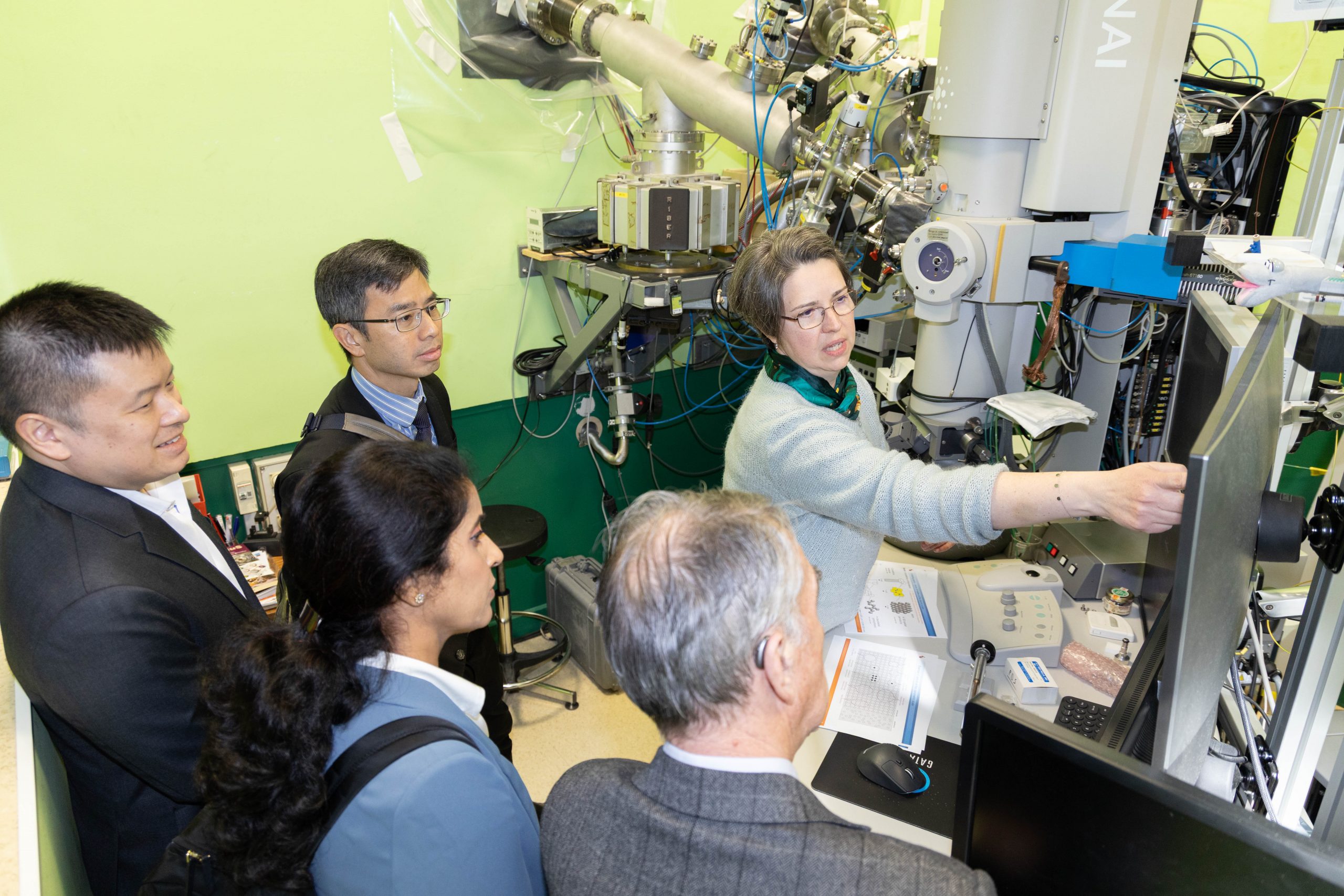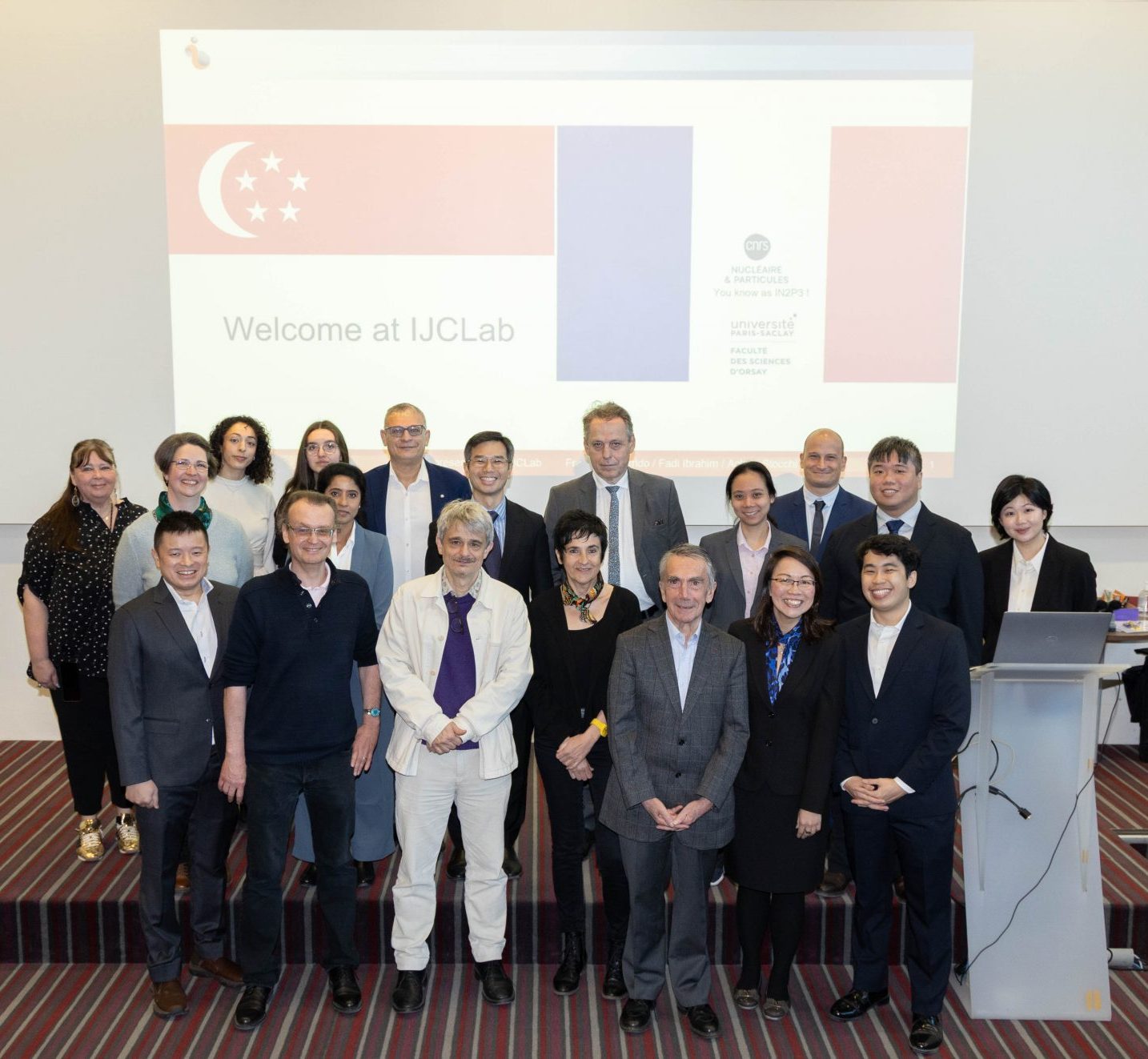
A Singaporean ministerial delegation visited IJCLab on April 8th, 2025, to explore advanced scientific collaborations in nuclear energy materials. This visit represents a significant step forward in strengthening Franco-Singaporean scientific relations and underscores IJCLab's internationally recognized expertise in materials research under extreme conditions.
Promising prospects for international collaboration
Hosting a high-level Singaporean delegation at IJCLab reflects the laboratory's commitment to reinforce international scientific partnerships on strategic issues. The delegation included Mr. John Lim, Director General of the National Research Foundation, representatives from the Singapore Embassy in France, and representatives from the SAFE (fusion) and SCARCE (circular economy) alliances. This visit demonstrates Singapore's growing interest in French expertise in energy materials.
These exchanges are part of Singapore's ambitious national energy transition strategy. Confronted with unique challenges stemming from limited territory and heavy reliance on energy imports, Singapore is working to diversify its energy sources and develop advanced technologies to reduce its carbon footprint. The country is investing heavily in clean technology research and shows particular interest in advances in nuclear energy materials.
Achille Stocchi, director of IJCLab, used this opportunity to present the laboratory's vision and capabilities, with special emphasis on the Energy and Environment department and its cutting-edge nuclear materials research. The meeting took place in the presence of Alain Schuhl, Deputy Director General for Science at CNRS, and Christelle Roy, Director of CNRS Nuclear and Particles, highlighting the strategic importance of these exchanges for the broader French scientific community.
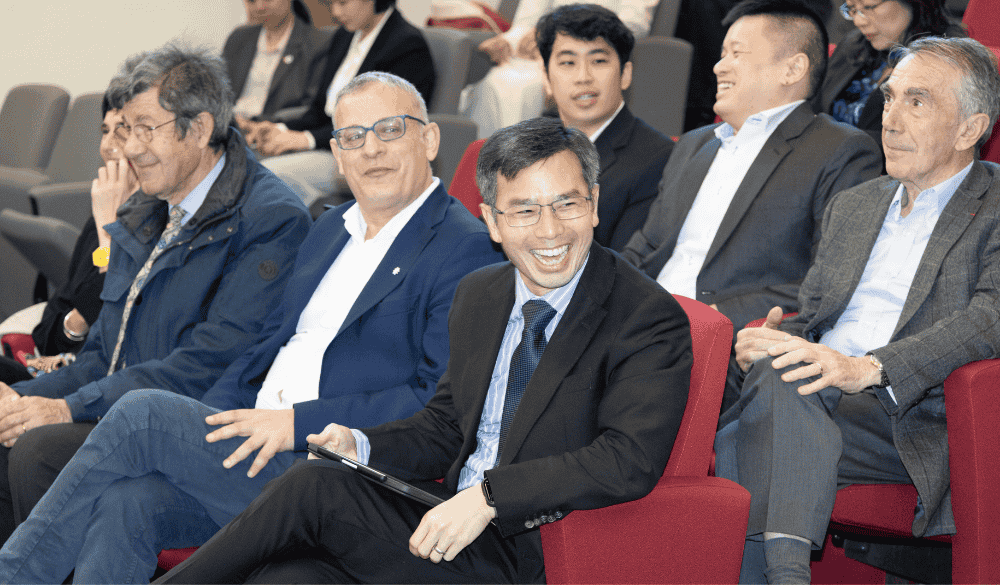
From left to right in the front row: Christelle Roy, Director of CNRS Nuclear and Particles, Etienne Augé, Vice-President Open Science of Université Paris-Saclay, Fadi Ibrahim, deputy director of IJCLab, John Lim, Director General of the National Research Foundation. Second row: representatives from NRF and Claude Guet, co-director of the SAFE alliance (fusion).
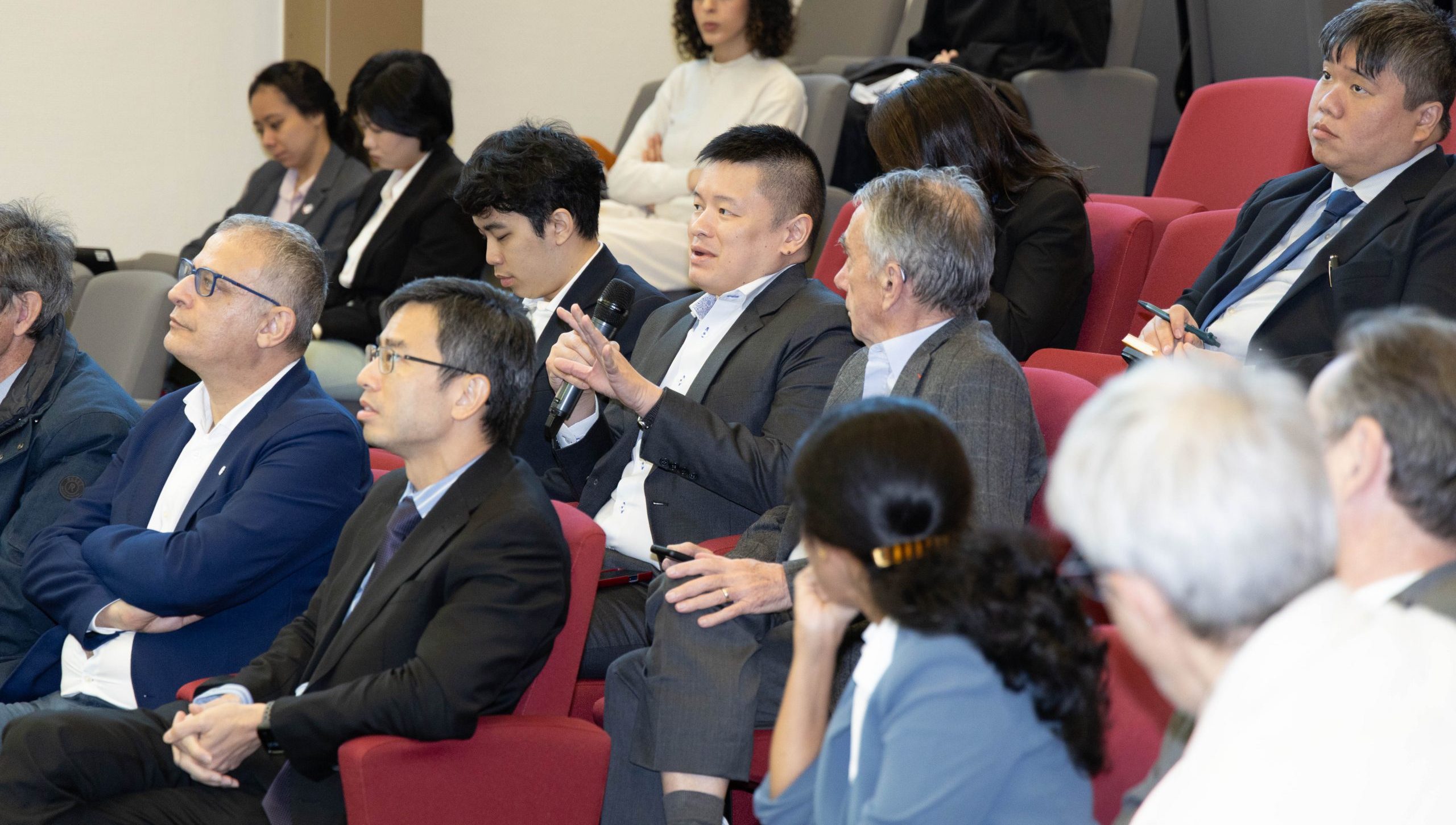
From left to right, front row: Fadi Ibrahim (IJCLab), John Lim (NRF), Madhavi Srinivasan, director of the SCARCE alliance (circular economy), Kong-Jie Kah (NRF), Alain Schuhl (CNRS), Achille Stocchi (IJCLab).
The MOSAIC platform: a unique scientific infrastructure for research and innovation
Central to the discussions was the JANNuS-Orsay experimental hall (Joint Accelerators for Nanosciences, Nuclear research and Simulation), a technological centerpiece of IJCLab within its MOSAIC ion beam facility. This facility, dedicated to studying irradiation effects in materials, captured the keen attention of the Singaporean visitors. Frederico Garrido, associate scientific director of IJCLab's Energy and Environment department, and Aurélie Gentils, CNRS research director and scientific head of the MOSAIC facility, showcased the exceptional capabilities of this installation.
"Our unique equipment enables us to experimentally simulate and observe in real time how material microstructures evolve under extreme conditions similar to those found in nuclear reactors," explained Aurélie Gentils. "This in situ analysis capability at the nanometric scale gives us unique insights into how materials degrade under irradiation."
Aurélie Gentils (IJCLab) during the visit of the in situ Transmission Electron Microscope at the JANNuS-Orsay hall of the MOSAIC facility, accompanied by John Lim (NRF), Kong-Jie Kah, Prof Madhavi Srinivasan (NTU) co-director of the SCARCE alliance, Prof. Claude Guet (NTU) co-director of the SAFE alliance.
What makes the JANNuS-Orsay hall within the MOSAIC facility unique is its configuration that combines multiple ion beams within a transmission electron microscope. Working together with the ARAMIS (2 MV Tandem/Van de Graaff) and IRMA (190 kV ion implanter) ion accelerators, this microscope enables in situ irradiation experiments using one or two ion beams, at a given temperature, accurately replicating the extreme conditions materials face in nuclear reactors.
"The research we conduct here directly applies to improving the durability and safety of materials used in energy facilities," emphasized Frederico Garrido. "Our work on synergistic effects in materials subjected to dual ion irradiation opens up promising avenues for developing new materials that can withstand extreme irradiation and temperature conditions."
From research to real-world applications
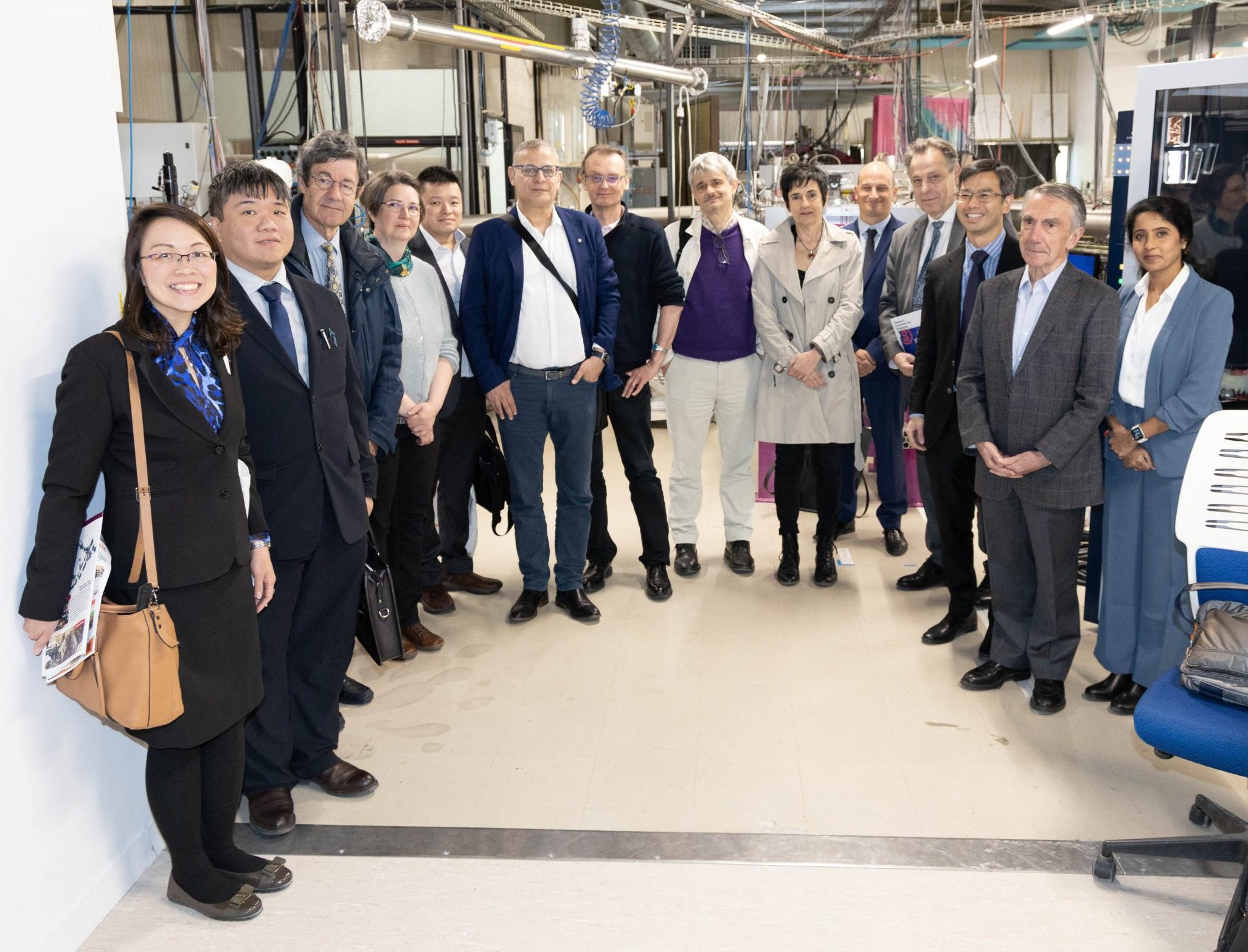
From left to right: Ms. Tan Puay Siang and Mr. Ng Yun Chi, representatives of the Singapore Embassy in France, Etienne Augé, Aurélie Gentils, Kah Kong Jie, Fadi Ibrahim, Frédérico Garrido, Achille Stocchi, Christelle Roy, Mathieu Salanne, Alain Schuhl, John Lim, Claude Guet, Madhavi Srinivasan.
The research conducted at MOSAIC focuses on several strategic areas that directly address current energy challenges: how innovative materials behave under irradiation, synergy effects in materials subjected to simultaneous dual irradiation, how impurities affect the physicochemical properties of materials, and understanding the mechanisms behind synthesizing new materials.
This fundamental research translates directly into developing new materials and enhancing the performance of materials used in energy infrastructure, helping to tackle major energy transition and sustainable development challenges. For Singapore, currently evaluating various options to reduce its fossil fuel dependence, these scientific advances represent a strategically significant opportunity.
Strengthening Franco-Singaporean scientific partnership
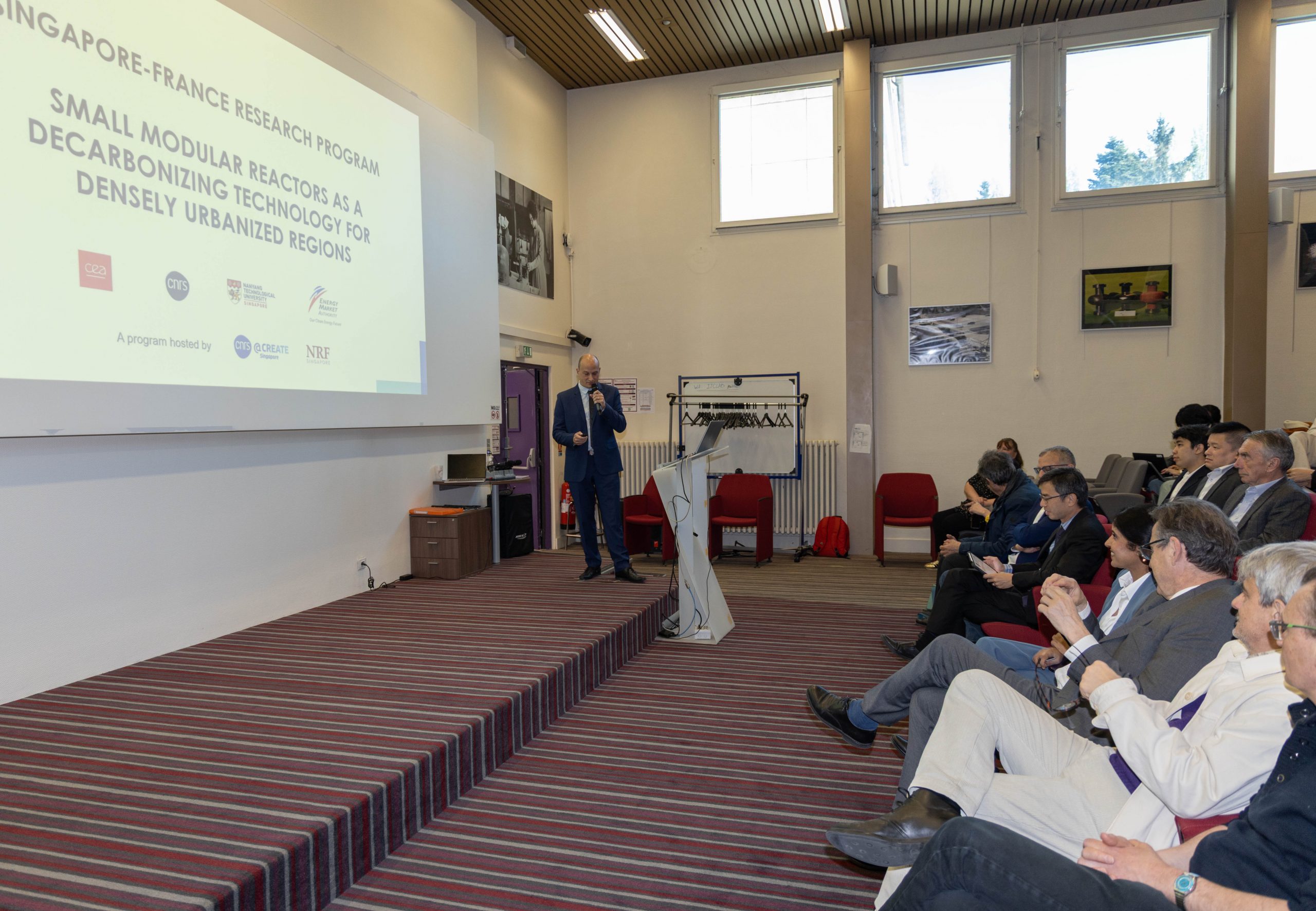
Mathieu Salanne, Professor at Sorbonne Université and Visiting Professor at CNRS@CREATE in Singapore, presented a collaboration project between France and Singapore, particularly with Nanyang Technological University (NTU), establishing pathways for practical cooperation. The complementary nature of French expertise in the physicochemistry of irradiated materials and Singapore's materials science capabilities provides a strong foundation for developing innovative solutions.
This Franco-Singaporean meeting demonstrates IJCLab's role as a key player in international research on nuclear energy materials. By fostering such exchanges, the laboratory actively contributes to building a global scientific network capable of addressing contemporary energy and environmental challenges while strengthening the influence and international reach of French research.
